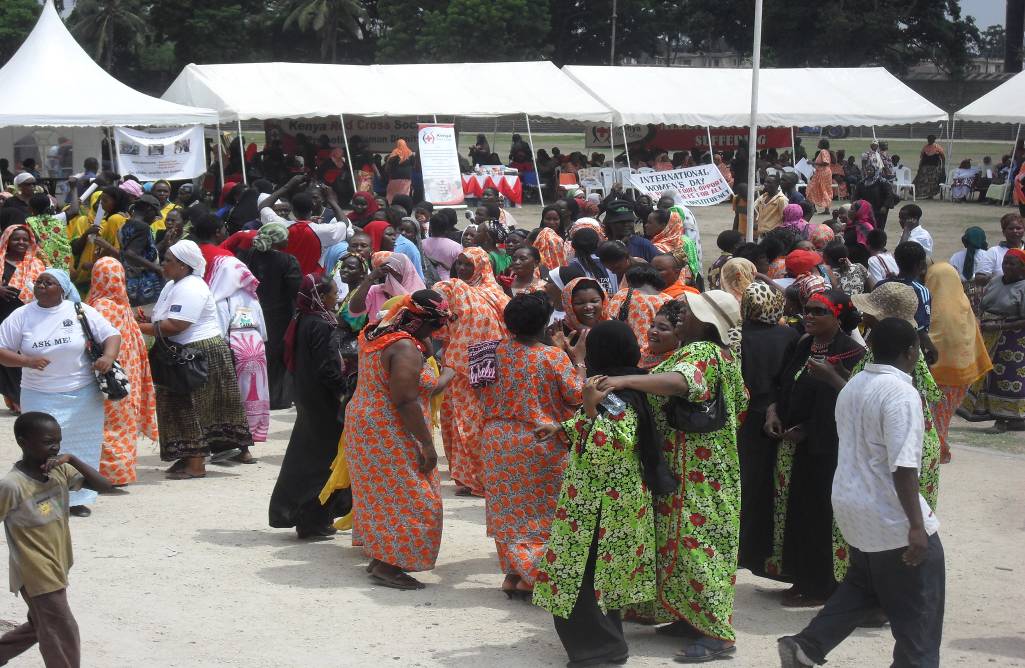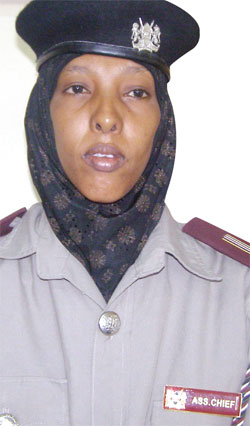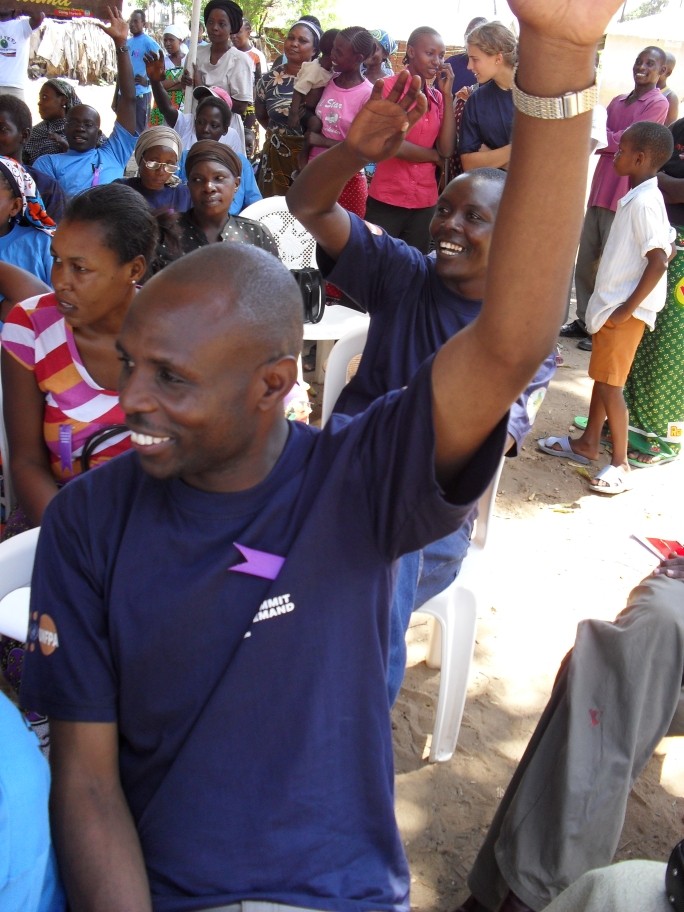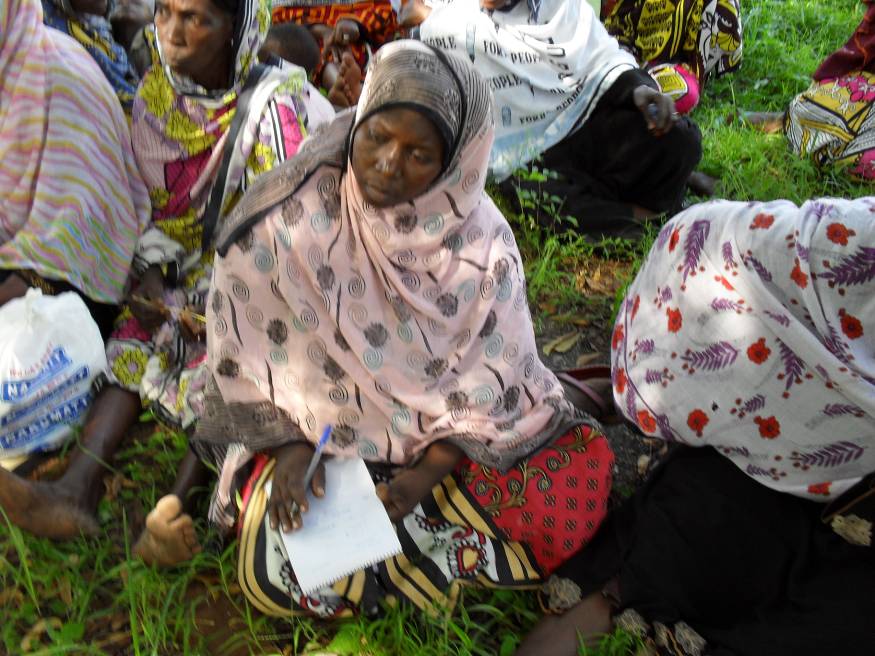|
CWIDíS NEWSLETTER: EDITION 1.
Word from the chairperson. CWID welcomes you to her very first newsletter; we recognize that as much as women leaders both locally and internationally are tirelessly working to achieve gender parity, we still need to do a lot more in terms of sensitizing our communities and empowering women to be self dependent. We should be able to target the grassroots woman who lives in sheer poverty, we will only boast of gender equity when that woman will be able to stand up among members of her community where men are the dominants and speak her voice with much confidence. The harmonized draft is the best bargain as far as women and children are concerned. The draft recognizes womenís rights, especially in land matters, dual citizenship and women leadership. As such we call upon the politicians not to attempt to derail the process. And just as we celebrate the 2010 International Womenís Day, we know that the fight towards gender parity and equal opportunities for our progress is still on, thus this yearís theme Equal Rights, Equal Opportunities, Progress for all. Welcome. INTERNATIONAL WOMENíS DAY. As we celebrated this years International Womenís Day with the theme; Equal Rights, Equal Opportunities. Progress for all we deliberate on what we have managed to achieve as Kenyan women, the challenges and what we need to do more to ensure gender equity in all sectors. Equal employment and education opportunities, as well as putting measures to fight violence against women are still the top three issues that the government has failed to address to ensure gender parity. The national launch was brought down to Coast, at the Mombasa Stadium where women had celebrated as they had a chance to meet most of their women leaders. It was joy for the event to take place here where matters of sexual gender based violence are still on the rise and a home where women are still chained by culture.
On the international womenís day 2010 at the Mombasa Stadium. It was a pity though that though it was and international event the women leaders had to the ones to pay for the event, the government does not seem to recognize the day and facilitate it as it would on other international days. Issues of economic empowerment carried the day as the women leaders tasked the banks financing womenís loans to reduce the interest percentage as well as simplify the loan forms since women at the rural areas who are illiterate find it difficult to make proper applications thus denying them the chance to access the loans.
WOMEN LEADERSHIP IN KENYA. Even with the awareness creation that has gone around the globe on women involvement in leadership, some regions in the rural areas of Kenya still find it hard to embrace women leaders in their communities. The recent appointment of the first woman ever to be appointed as assistant chief for Meri Location in Wajir South District six months ago has been met with less support and much criticism.
Mrs Sirajís main hurdle is the resistance by the elders as their culture and religion to accept a woman to sit on the leadership positions. Being a Muslim where she is supposed to be covered up in their veils (buibui), religious leaders find it unusual since she has to be dressed up in her official uniform.
Mrs. Amina Siraj Some of her community members appraise her though, they are excited about what a woman leader has to offer, they even push for her to talk in public forums and she is always optimistic to encourage them that together they can bring change in their region. Most of them pat her on the back and encourage her to stand firm on her work. Her appointment has encouraged women in their region to vie for the local leadership positions, though Mrs. Siraj was the only applicant in the post she vied for, she hopes to climb the ladder to the post of Provincial Commissioner. In as much as women in the Meri community are still plagued by oppressive cultural and religious norms, Mrs. Siraj has an enormous duty to hearten other women to rise up and let their voices be heard. CWID feels that the move to appoint her in the local administration is a platform for the government to appointment more women in different positions from other regions where women are still servile to men. MEN ON THE MOVE IN FIGHTING VIOLENCE AGAINST WOMEN. It is encouraging to watch quite a number of men organizations coming up to fight the violence against women, men have been known to be the perpetrators of violence against women and having men who can advocate to their fellow men and discourage them against violating the rights of women and girls is a very big step for the SGBV/GBV fraternity. The change women are craving for can only be realized if the perpetrators are fully involved as the instruments of change. Most men do not want to be viewed as the weaker sex and would do anything to appear superior.
By a show of hands, men out to fight SGBV/GBV. Even with the educated women on board, men still want to be the decision makers, they still want to be the heads in all the decision making tables, be it in their homes or anywhere else where women are fighting for positions. It is sad to note that in most cases women suffer in the hands of men, men always need their ego to be stroked and any attempt to defy this is met with brutality One of the most effective ways to involve men in fighting GBV is the need to give men positions in campaigns and events on ending GBV.
GRASSROOT WOMEN NEED TO KNOW THEIR RIGHTSÖ. Kenyan women, especially those living at the rural areas barely know what they are entitled to as women. In most of the outreaches CWID has done, we have realized that as much as women activists/leaders have gone around fighting for the women and children rights, women living in extreme rural areas have still been left behind.
CWID realizes that those women have the potential to change this country to a women friendly one, but they rarely get the chance to speak out their minds. While women stakeholders go around in meetings and forums speaking for them, they never bring back to the ground the information they get in the trainings. Rural women need to be represented in all the forums that touches on women issues, in most occasions, all the predicaments affecting a country, itís the women at the rural who are affected the most, it is therefore important that they get full representation so that their predicaments can be fully addressed and they can also be sensitized on the rights that they are entitled to.
COAST HUMAN RIGHTS ACTIVISTS- CHRA KIBAKI LETS KENYANS DOWN AGAIN BY RETAINING THE MINISTERS. CHRA are stunned by the presidentís decision to reverse the suspension of the Education minister Samuel Ongeri and Agriculture minister William Ruto back in office. The education ministerís term in office is long overdue, he was to go home when corruption deals at his ministry was detected after the 2008 KCPE examination results were released and clearly indicated a high level of corruption in his ministry which left a lot of Kenyan children in hopeless situations. Itís unbelievable that a senior government minister who has been in the government for years is messing up the opportunity of our future leaders. Kenyan childrenís future in education is at stake is the education funds are mishandled and he refuses to take responsibility, a sign of a high level of complacency and disregard to Kenyan desperate situation. It is sad that an agricultural country as Kenya, her citizens buy unga which is the staple food at Sh 100. With the poverty level standing at 60%, this shows that 60% of the population earns below Sh. 100 per day. People are still dying of hunger and if maize disappeared the minister should step aside to pave way for investigations. The act of the president to retain the ministers back in office clearly shows he is not ready at all to fight corruption. We demand that the president should sack every person suspected to be in a corrupt deal inclusive of Ruto and Ongeri, we are demanding of cleansing of our system, we are tired. CHRA |




